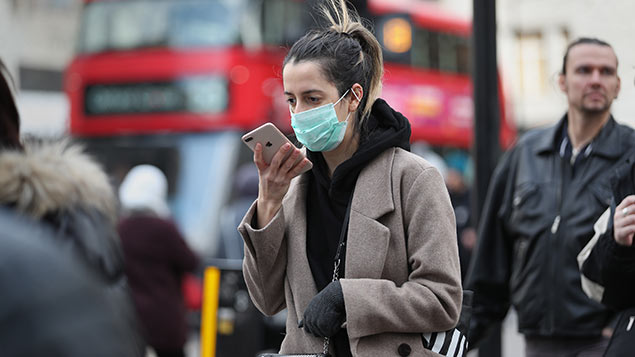All schools in the UK will close from Friday until further notice in order to slow the spread of the coronavirus – except for the children of “key workers”.
In a statement to parliament this evening, education secretary Gavin Williamson said all schools, including private schools, further education colleges, sixth-form colleges and early-years care providers should close their doors from Friday afternoon to most children and students.
Special extended webinar
Register now for Coronavirus: What employers need to know (webinar)
However, schools will remain open to provide care for the children of key workers such as NHS staff, emergency services workers and delivery drivers, to enable them to continue to provide vital services.
Vulnerable children, such as those with a social worker, will also be able to attend school.
Earlier today it was announced that schools in Scotland and Wales would close on Friday. Williamson’s announcement means this has now been extended to England.
Schools in Northern Ireland closed at 5:00pm today (18 March), although their staff will continue to work until Friday.
Williamson said the decision was made after it became apparent that schools were “increasingly finding it more difficult to continue as normal” and that the virus was having an impact on staffing levels and pupils’ attendance.
In his press conference following Williamson’s announcement, prime minister Boris Johnson said: “For many parents it will be frustrating and it will make it harder for them to go to work. That’s why we’re now working on further measures to keep our economy going.”
Johnson said parents who were not working from home and needed to continue to travel into work, should not leave their children with grandparents or other older, more vulnerable relatives.
GCSE and A-level exams in the summer have also been cancelled, but no further detail has been given on how students will be graded.
Matthew Fell, chief UK policy director at the CBI, said: “Difficult decisions are having to be made each day and people’s safety must always come first. Today’s announcement on school closures feels necessary, but of course will present challenges for parents and carers.
“Businesses will do all they can to help their employees in these unprecedented times. Companies will make every effort to offer flexible working, but many parents simply won’t be able to do their jobs and care for their children at the same time. With so many businesses already struggling with cash flow, government will urgently need to step in with additional support to employees who are unable to work because of school closures.”
Although many people will be working from home, parents will find themselves needing to “juggle” work with looking after their children, including supporting their learning, at home, said Jane van Zyl, chief executive at charity Working Families.
She said: “Now’s the time for line managers to have sensible and understanding conversations with parents and carers of young children – particularly those working full-time – about what is needed, and what is and isn’t possible, over the coming weeks.
“It’s important that the government provides support to employers that can’t afford to continue to pay staff who are unable to work from home. This includes small employers that cannot afford to absorb any fall in productivity due to the parents and carers they employ having to work from home whilst looking after their children. Particular attention should be paid to supporting parents and carers in insecure work, including the self-employed, as they are most at risk of not being paid.”
Peter Cheese, chief executive of the CIPD, said: “The Government’s decision to close schools will have a massive impact on working parents. Those that are able to work from home should continue to do so as far as they can. However, this is an exceptional circumstance. Employers must accept that there will be disruption and that working parents will struggle to be as productive as normal.
“Employers need to make allowances for this and take a flexible approach, especially for people with younger children who will inevitably need more care. With many schools looking at remote teaching, parents will have to juggle their work with helping their children to access school activities. There may be limited space and limited equipment to manage both parents and children working from home each day. There will be disruption.
Sign up to our weekly round-up of HR news and guidance
Receive the Personnel Today Direct e-newsletter every Wednesday
“Employees should speak to their line managers and HR teams to understand how they can best balance family and work commitments, especially as this stands to be for a prolonged period of time.”
Education sector HR roles on Personnel Today
Browse more HR jobs in education

